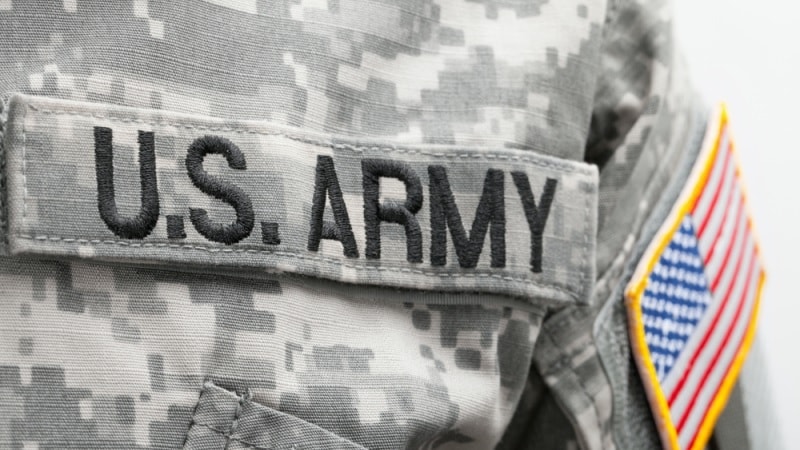
The U.S. Army Human Resources Command (AHRC) is incorporating artificial intelligence (AI) into its noncommissioned officer (NCO) promotion boards to speed and streamline candidate evaluations, officials announced last week at the Association of the U.S. Army’s annual meeting.
The initiative is part of the Army’s broader Comprehensive Board Reform and Analysis program, which aims to make “promotion boards more efficient, focused, and transparent,” according to Col. Tom Malejko, chief talent analytics officer at AHRC.
The AI system will help “screen out individuals that are not really competitive for the process upfront and then help our board members to focus their valuable time and resources on those individuals that are most competitive for that selection,” Malejko said.
“This is not about replacing people,” Malejko added. “We’re using [AI] to augment their decision-making.”
The AI system, described as “naive,” does not factor in names, military branches, or ranks. Instead, it scans soldier records to determine whether candidates meet basic prerequisites for promotion, such as specific schooling or command experience.
Maj. Gen. Hope Rampy, commanding general of the AHRC, said the volume of records currently reviewed by NCO promotion boards has grown unmanageable. Many soldiers being reviewed are not yet competitive for promotion but still require a formal merit list score under current procedures. The new AI tool is designed to reduce that burden.
The Army has already used algorithm-based systems for four years to help determine which officers should be invited to selection boards. Rampy said that while early versions of the algorithm mistakenly excluded more than 30 officers in a given year, refinements have reduced that number to fewer than five annually.
“The algorithm got better every year because you can retrain it,” she said.
Beyond promotions, officials are also exploring how similar AI tools could be used to identify soldiers with specific skills – such as language fluency or technical expertise – for missions or assignments, even if those skills fall outside their primary military roles.
Despite the promise of AI, leaders cautioned that full transparency and human judgment remain essential.
“Only humans can make a good judgment call,” Rampy said.
Rampy emphasized that human oversight will remain central to the process. Each step in the AI’s recommendation is reviewed by a team to guard against bias and ensure fairness. In addition, the Army built controls into the system to mitigate potential bias by ignoring demographic indicators such as race, ethnicity, and branch of service.
The AI model is currently being used in NCO evaluations as a pilot program. If successful, officials said the Army plans to seek additional authority from Congress to expand its use to officer promotion boards, which are subject to different regulatory oversight.
